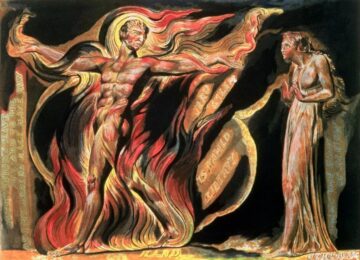From Ross Barkan:
 What is a novel, or any work of art, but the product of its time, of commerce? What is it but another colorful consumer unit, to be slid dutifully on a shelf or hawked through the internet? I’ve been mulling, of late, actions and reactions, the trope of the lone genius and the trope of systems. One held very long in the culture before being defenestrated, in academia at least, over the last several decades. The other is now dominant—at least, among those in the know, those who still analyze literature. In a systems conception, the genius of creation is disregarded and dismissed; no lone spark could truly emerge, no individual could labor, by herself, to write the novels, poems, or plays that endure across the ages, or even get remembered a decade after publication. Christian Lorentzen’s essay in Granta on Dan Sinykin’s otherwise acclaimed book, Big Fiction: How Conglomeration Changed the Publishing Industry and American Literature, strikes at the heart of this sociology of literature, which is well-intentioned, fascinating, and wrongheaded in an obvious enough way: it can say very little about what’s inside the actual books.
What is a novel, or any work of art, but the product of its time, of commerce? What is it but another colorful consumer unit, to be slid dutifully on a shelf or hawked through the internet? I’ve been mulling, of late, actions and reactions, the trope of the lone genius and the trope of systems. One held very long in the culture before being defenestrated, in academia at least, over the last several decades. The other is now dominant—at least, among those in the know, those who still analyze literature. In a systems conception, the genius of creation is disregarded and dismissed; no lone spark could truly emerge, no individual could labor, by herself, to write the novels, poems, or plays that endure across the ages, or even get remembered a decade after publication. Christian Lorentzen’s essay in Granta on Dan Sinykin’s otherwise acclaimed book, Big Fiction: How Conglomeration Changed the Publishing Industry and American Literature, strikes at the heart of this sociology of literature, which is well-intentioned, fascinating, and wrongheaded in an obvious enough way: it can say very little about what’s inside the actual books.
More here.
Enjoying the content on 3QD? Help keep us going by donating now.
